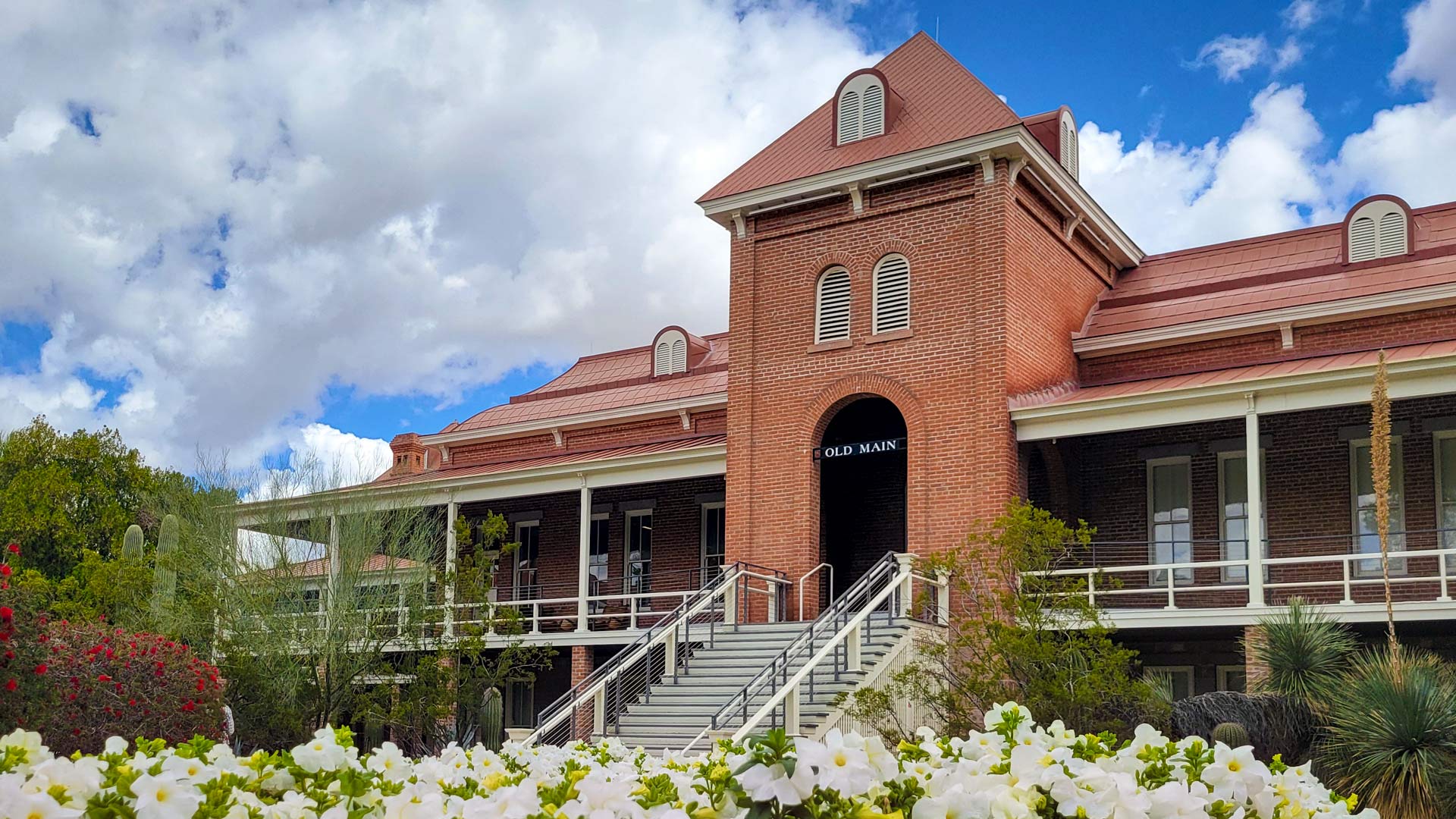 White flowers are planted around the historic fountain in front of the Old Main building on the University of Arizona campus.
White flowers are planted around the historic fountain in front of the Old Main building on the University of Arizona campus.
Protesters at college campuses in Arizona are calling on universities to get rid of investments in companies with ties to Israel, something those schools can’t do under state law.
Students and activists at universities in Arizona have staged protests and encampments in recent weeks in support of Palestinians and calling for a ceasefire in the ongoing Israel-Hamas war.
“My family is all in Palestine and if I don’t speak up, nobody else is gonna,” said Jeanine, a student who did not give her last name. “So, just to me, it’s helping them in ways that they can’t help.”
Protesters made a series of demands before ASU cleared the encampment. That included calling on ASU President Michael Crow to resign over his handling of the protests and demands that the university cut financial ties with “all companies tied to the state of Israel or complicit in the occupation of Palestine.”
But a state law passed in 2016 prohibits the state and local governments from adopting investment policies that include boycotting Israel.
“A public entity may not adopt a procurement, investment or other policy that has the effect of inducing or requiring a person or company to boycott Israel,” according to the law.
A 2022 law added public universities and community colleges to the list of entities covered by the 2016 law.
“We have a right as the state of Arizona to decide who we’re going to invest with or not, and that’s what we’re doing here as a body,” Sen. David Gowan (R-Sierra Vista), who sponsored both bills, said in 2022.
An early version of the 2016 law only banned state entities from entering contracts with businesses that are participating in boycotts of Israel.
But then-Sen. Kimberly Yee, a Republican who is now the state’s treasurer, introduced an amendment that added the section barring public entities from participating in the boycotts themselves.
“It was an issue we looked at as early as 2016, and here we see it today with respect to the many protests that we are seeing calling on additional boycotts of Israel,” said Yee, who, as treasurer, divested the state from Ben and Jerry’s parent company after it stopped selling ice cream in Israeli-occupied territories.
She said she added the language at the behest of groups pushing legislation around the country targeting the BDS movement, a Palestinian rights movement that promotes boycotts, divestments, and sanctions against Israel, according to Palestine Legal, a U.S.-based Palestinian civil rights group.
Legislators amended that law in 2019 to limit those restrictions to contracts worth over $100,000 and businesses with 10 or more employees in order to circumvent a lawsuit filed by a Flagstaff attorney who represented incarcerated people under a contract with the state.
Thirty-eight states have adopted laws targeting the BDS movement.


By submitting your comments, you hereby give AZPM the right to post your comments and potentially use them in any other form of media operated by this institution.